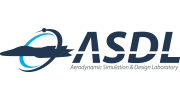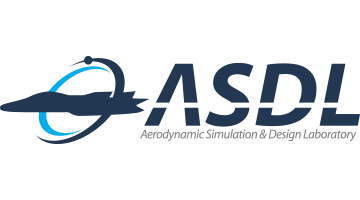Chongam Kim Professor
Department of Aerospace Engineering, Seoul National University
|
-
|
|
| 1988 |
Seoul National University, Aerospace Eng, Bs degree
|
| 1990 |
Seoul National University, Aerospace Eng, Ms degree
|
| 1997 |
Princeton University, School of mechanical & Aerospace Eng, Ph.D.
|
|
-
|
|
| 1991-1992 |
Researcher, KIST Supercomputing Center (KISTI)
|
| 1997-1998 |
Research Fellow, Center for Turbulence Research (CTR), Stanford University
|
| 1998-Present |
Professor, Seoul National University, Department of Aerospace Engineering
|
| 2012-Present |
Associate Fellow, The American Institute of Aeronautics and Astronautics (AIAA)
|
| 2019-2020 |
Chairman, Korean Society for Industrial and Applied Mathematics
|
| 2019-Present |
Committee Member, AIAA Fluid Dynamics Technical Committee
|
| 2020-Present |
Committee Member, International Conference on Computational Fluid Dynamics (ICCFD)
|
| 2021 |
Chairman, Korean Society for Computational Fluid Dynamics
|
| 2022 |
Chairman, Korean Society for Aeronautical and Space Sciences
|
| 2002, 2006 |
KISTI Award of High Efficiency Computing
|
| 2003 |
KOFST Best Paper Award
|
| 2008, 2019 |
KAI Aerospace Best Paper Award
|
| 2011 |
SNU Engineering SinYang Award for Academic Achievement
|
| 2013 |
HPC Innovation Excellence Award, IDC(International Data Corporation)
|
| 2014 |
EDISON Achievement Award, NRF(National Research Foundation)
|
| 2016 |
KSASS Award for Educational Service
|
| 2018 |
KSASS Award for Academic Achievement
|
| 2020 |
KSCM Computational Mechanics Award
|
| 2021 |
KSIAM-KUMKOK Award
|
| 2023 |
KSAS Park Chul Aerodynamic Award
|
| 2023 |
MSIT KMS Choi Seok-Jung Award
|
| 2009.05 ~ 2015.12 |
Development of Wind Resistance Structure System for Long-Span Bridges, Ministry of Land, Infrastructure and Transport
|
| 2010.10 ~ 2015.09 |
Prediction Technology for Low Gravity Cryogenic Propellant Behavior, Korea Aerospace Research Institute
|
| 2013.09 ~ 2015.10 |
Development of Fluid-structure Integrated Simulation S/W for Three-dimensional Solid Rocket Motor, Agency for Defense Development
|
| 2013.11 ~ 2015.12 |
Bio-mimetic Robot Research Center, Bio-mimetic Structure/Mechanism Laboratory, Research on the flexible structure of insect mimetic micro air vehicle (BMRR-42), Defense Acquisition Program Administration/Agency for Defense Development
|
| 2014.07 ~ 2019.06 |
Analysis of the Fuel Residual through the High-fidelity Computations of Multi-phase Cryogenic Flows in Liquid Rocket Propellant/Oxidizer Tank under Various Gravity Conditions, National Research Foundation of Korea
|
| 2014.09 ~ 2016.12 |
Design Optimization of Air Inlet Shape Using Unified Coordinate System, Agency for Defense Development
|
| 2014.10 ~ 2015.09 |
Flow Analysis and Design of LRN Airfoil, Lockheed Martin
|
| 2014.11 ~ 2017.11 |
Study on the Fluid Force and Cavitation Characteristics of Moving Vehicle/control Surface in Supercavitation Conditions, Agency for Defense Development
|
| 2014.12 ~ 2019.12 |
Flow Analysis Technology for Hit-to-kill Interceptor Design (HV-21), Defense Acquisition Program Administration/Agency for Defense Development
|
| 2015.07 ~ 2020.06 |
Transformative Training Program for Creative Core Engineers in Space Engineering, Ministry of Science and ICT/National Research Foundation of Korea
|
| 2015.09 ~ 2017.12 |
Fluid-Structure Interaction Analysis of Liquid Rocket Engine Side Loads, Korea Aerospace Research Institute
|
| 2016.03 ~ 2018.12 |
Bio-mimetic Robot Research Center, Bio-mimetic Structure/Mechanism Laboratory, Research on the flexible structure of insect mimetic micro air vehicle (BMRR-51), Defense Acquisition Program Administration/Agency for Defense Development
|
| 2016.08 ~ 2019.02 |
Maintenance of Apps and Community of EDISON_CFD, Korea Institute of Science and Technology Information
|
| 2016.10 ~ 2018.09 |
Research on Flow Analysis and Reduction Technology of Abrupt Wing Stall, Korea Aerospace Institute
|
| 2017.01 ~ 2020.12 |
Development of Computational Fluid Dynamics Code for Fighter Aircraft, Korea Aerospace Institute
|
| 2017.05 ~ 2019.12 |
Computational Study of Massively Separated Flows using High-Order Discretization Methods for High-Maneuverability/High-Angle-of-Attack Flight Vehicle, Agency for Defense Development
|
| 2017.09 ~ 2020.08 |
Study on Cavitation Flow Characteristics and Extraction of POGO Parameter in Turbopump, National Research Foundation of Korea
|
| 2020.09 ~ 2023.09 |
Physics-Based Direct Simulation of Multiple UNDEX Using High-Fidelity Numerics and Accurate Description of Thermodynamics and Phase Change, Office of Naval Research Global
|
| 2020.12 ~ 2025.12 |
Data-driven Flow Modeling Research Laboratory (DFM-01), Agency for Defense Development
|
| 2020.12 ~ 2022.11 |
Research on Unsteady Numerical Method for Simulation of Ship Airwake, Korea Aerospace Research Institute
|
| 2019.10 ~ 2025.06 |
Development of Next Generation Pipeline Robot Technology for the Long-Distance Inspection of the Low Pressure / the Low Flow of Gas Pipelines, Korea Gas Corporation
|
Researches in professor Kim’s Lab. largely focuses on the development of advanced numerical methods for solving partial differential equation (PDE) and their applications to several aerodynamic engineering fields. Regarding advanced numerical methods for reliable numerical simulations, accurate, robust and efficient FVM-based flux schemes and limiting schemes (e.g. RoeM/RoeM_N, AUSMPW+/M-AUSMPW+/AUSMPW+_N fluxes, and MLP/MLP-u limiters) are developed. For higher-order methods such as DG, FR/CPR, higher-order shock-capturing method (hMLP, and hMLP_BD) are developed. Using these numerical methods, a number of applications are being conducted. First, we are conducting researches on all-speed multi-phase flows with phase change. This research area includes cavitation, multi-phase shock analysis and physics of cryogens inside liquid rocket. Fully integrated (fluid-structure-burning) computational simulations for multidisciplinary phenomena inside solid rocket motor are being conducted. Particular interests are focusing on nonlinear feedback interaction of fluid, solid, and burning module in order to examine highly coupled unsteady phenomena between hot gas flow, structure deformation and propellant burning. Fluid-Structure Interaction simulations of biomimetic flapping MAV’s are also being conducted. To achieve optimal performance of flapping MAV’s, analyses are focused on the unsteady aerodynamic force generation mechanism and the flexibility of the wing depending on insect’s flapping motion and structural materials. Aerodynamic shape design optimization is performed with high-fidelity computational analysis and optimization methodologies. Shape design optimization of airfoil, wing, wing-body configurations and intake is conducted. And, we are conducting researches on active flow control using synthetic jet to provide additional momentum to external flow for separation delay.
Google Scholar
ResearchGate






